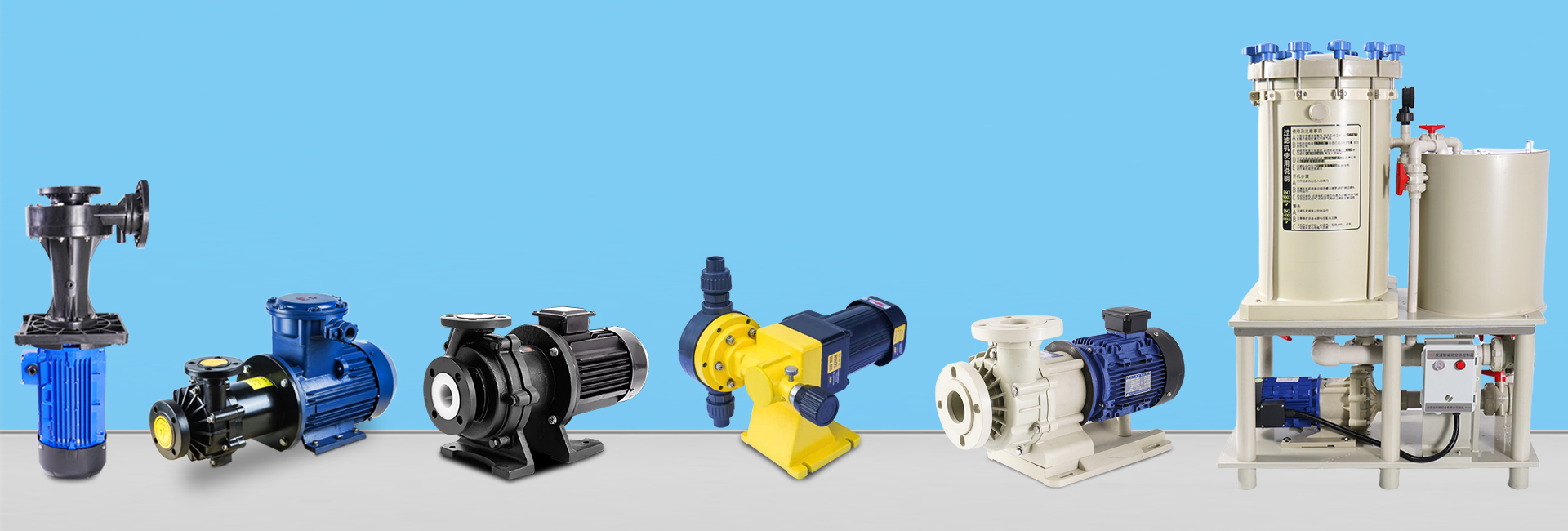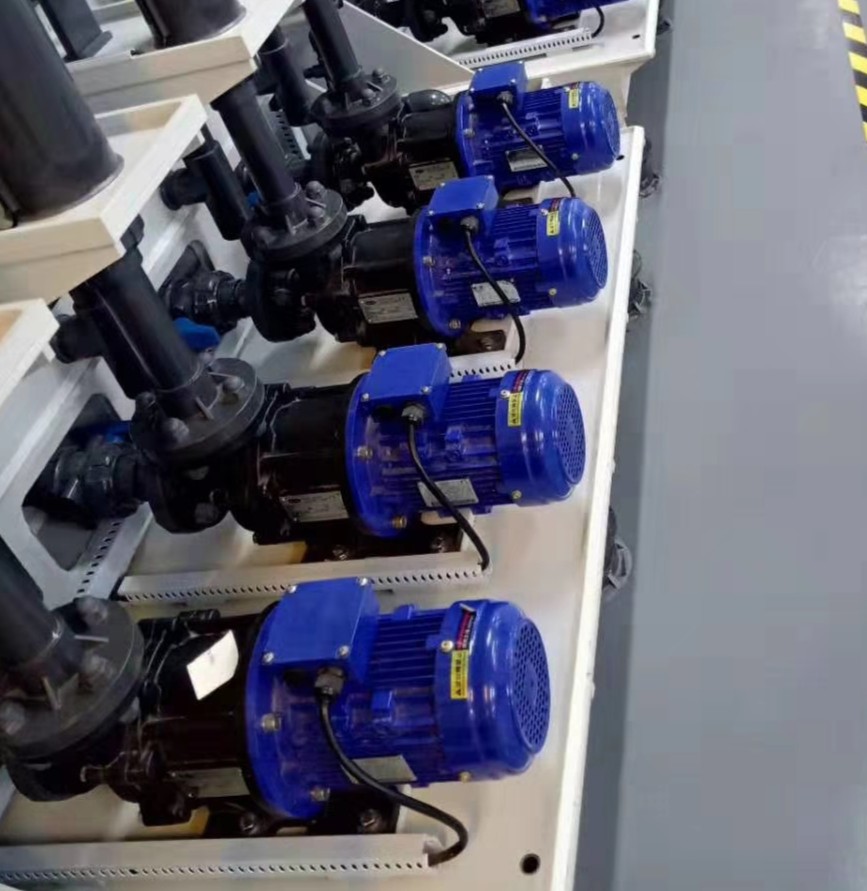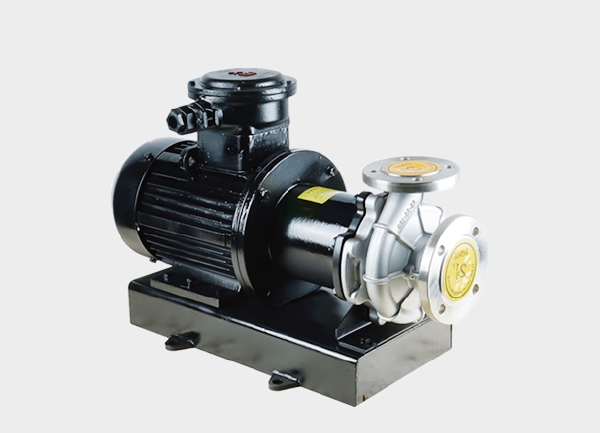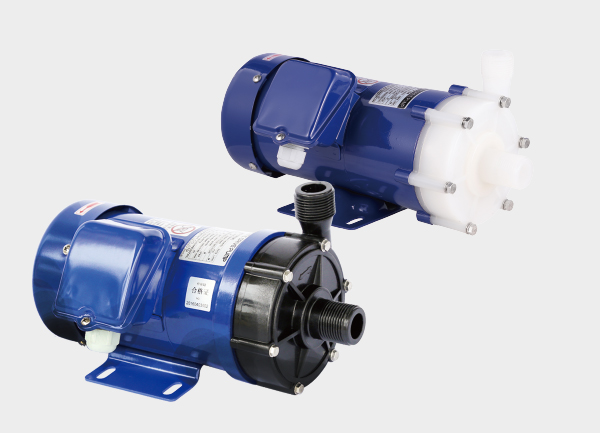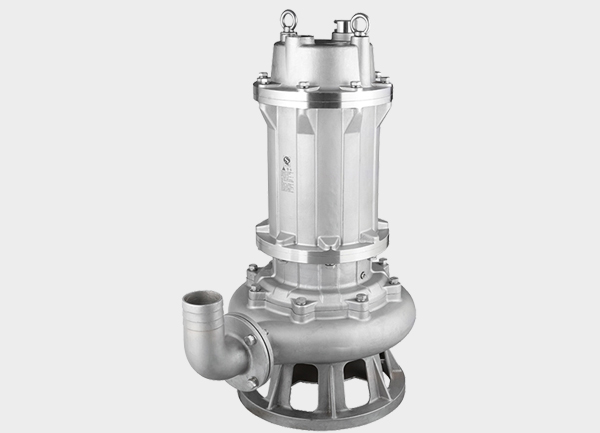In the chemical industry, the selection of pump equipment directly affects production safety, operational efficiency, and environmental protection. As global attention to safe production and environmental protection increases, traditional mechanical seal pumps have gradually revealed their limitations, such as seal wear, leakage risks, and frequent maintenance. In contrast, magnetic pumps, with their advantages of no leakage, corrosion resistance, and low maintenance, are becoming the preferred equipment in the chemical industry.
So, why are more and more chemical enterprises choosing magnetic pumps?
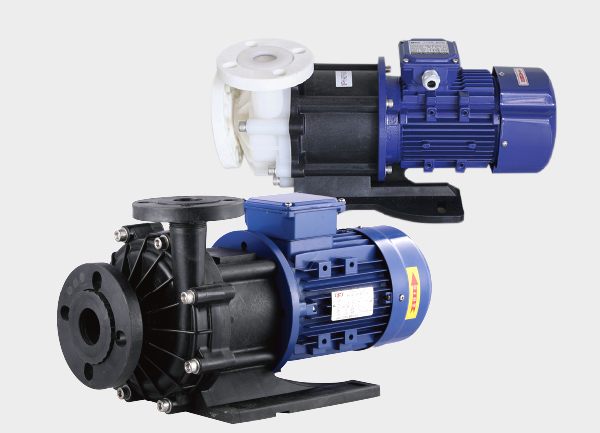
What is a magnetic pump?
A magnetic pump is a type of pump that drives the impeller to rotate through magnetic coupling, achieving zero leakage. Its most significant feature is the absence of mechanical seals, thus eliminating the risk of leakage due to seal wear. The pump body and the drive part are separated by an protection sleeve to ensure the isolation of the liquid from the energy transmission.
Common materials used in magnetic pumps include:
Metal materials (such as stainless steel) → suitable for medium to high temperatures, weakly corrosive or particle-containing media
Plastic materials (such as PP, PVDF) → suitable for strong acids, strong bases, and highly corrosive liquids
Core advantages of magnetic pumps
- Eliminate leakage and ensure safety
Most leaks in traditional pumps come from mechanical seal wear. Magnetic pumps, by eliminating the seal structure, achieve true “zero leakage,” making them particularly suitable for the transportation of toxic, harmful, and flammable liquids.
- Excellent corrosion resistance
Magnetic pumps widely use stainless steel, fluoroplastics, and alloy materials, capable of resisting various corrosive chemical media. Especially,magnetic pumps perform much better than ordinary chemical pumps in scenarios as hydrochloric acid, sulfuric acid, and hydrofluoric acid.
- Low maintenance costs
Magnetic pumps have fewer components, less wear, and require less maintenance during operation. Enterprises can reduce maintenance costs and minimize downtime losses caused by equipment failures.
- Stable and reliable operation
Magnetic pumps can effectively avoid the “leakage, dripping, and seepage” problems of traditional pumps for no mechanical seals and less friction points. They are particularly suitable for long-term continuous operation.
- Highly Adaptability
Magnetic pumps can handle both highly corrosive media and high-purity liquids.
Typical application industries include:
Petrochemical: transporting aromatics, olefins, and hydrocarbon solvents
Pharmaceutical industry: transporting high-purity chemical raw materials
Electroplating industry: transporting acid washing solutions and electroplating solutions
Wastewater treatment: transporting acidic and alkaline waste liquids
Magnetic Drive Pumps vs. Mechanical Seal Pumps
| Feature | Magnetic Drive Pump | Mechanical Seal Pump |
| Sealing Design | Sealless, zero leakage | Mechanical seal, prone to wear |
| Maintenance Frequency | Low, extended service life | High, frequent seal replacement |
| Suitable Media | Corrosive, toxic, hazardous fluids | Limited to less corrosive fluids |
| Safety & Environmental | High safety, eco-friendly | Leakage risks, contamination possible |
| Initial Cost | Slightly higher | Relatively lower |
| Lifecycle Cost | Lower overall (maintenance savings) | Higher (due to repair & downtime) |
It can be seen that although the initial investment in magnetic pumps may be slightly higher, they are clearly superior to mechanical seal pumps in terms of life-cycle costs.
Typical scenarios suitable for magnetic pumps
Highly corrosive environments → transporting sulfuric acid, hydrochloric acid, hydrofluoric acid, etc.
Dangerous chemicals → toxic, harmful, and flammable liquids
Environmental protection scenarios → zero leakage discharge of wastewater and waste liquids
High-purity transportation → pharmaceutical and food-grade liquids
With the continuous improvement of international environmental protection regulations and safety standards, the demand for “zero leakage” equipment in the chemical industry is increasing.
Globally, the market for magnetic pumps is expected to grow at a compound annual growth rate of 5% to 7%.
The construction of green factories and clean production will further promote the popularization of magnetic pumps.
High-end magnetic pumps are gradually developing towards intelligence, high temperature resistance, and resistance to particle wear.
In conclusion, the reason why magnetic pumps have become the ideal choice in the chemical industry is that they are safe and environmentally friendly, corrosion-resistant, low-maintenance, and stable in operation. They are particularly suitable for applications that require zero leakage and high reliability. Magnetic pumps are not just a piece of equipment but a solution to enhance competitiveness for enterprises that pursue long-term stable operation and cost reduction.

